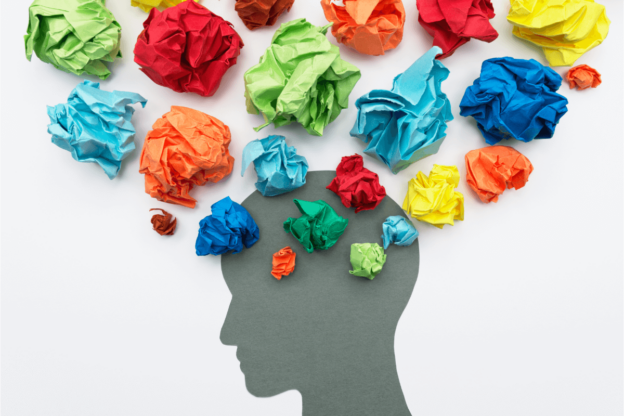Often closely entwined, drug addiction and mental health problems create a difficult and demanding scenario for those seeking recovery. At Berkshire Mountain Health, our approach to drug rehab in Berkshire addresses both addiction and mental health, recognizing that a comprehensive treatment plan must consider the full spectrum of a person’s well-being.
Here, we explore how drug addiction affects mental health and why a successful recovery depends on addressing both problems concurrently.
The Connection Between Drug Addiction and Mental Health
Often coexisting with one other, drug addiction and mental health issues each influence and aggravate the other. Disorders including depression, anxiety, and PTSD can be triggered or aggravated by substance use disorders.
On the other hand, those dealing with mental health problems might turn to drugs as a kind of self-medication, which ultimately leads to addiction. To get long-lasting healing from both disorders, this bidirectional relationship makes treatment of both important.
Drug Addiction Affects Mental Health
Drug addiction profoundly and in many different ways influences mental health. Substance abuse changes brain chemistry, therefore influencing sectors of mood, cognition, and behavior. These changes over time might cause mental health issues resulting from and a contributing cause to ongoing drug use.
Depression and Anxiety
Regular drug use can cause notable alterations in the reward system of the brain, therefore lowering the natural synthesis of dopamine and serotonin — neurotransmitters controlling mood.1
This frequently causes extreme anxiety and despair, which makes it challenging for people to find pleasure or comfort other than via drugs. Furthermore, aggravating these disorders might be the stress of addiction, including job loss or interpersonal distress.
Trauma and PTSD
Many people who have experienced trauma use drugs as a coping mechanism. Sadly, drug addiction frequently aggravates PTSD symptoms, including hyperarousal, nightmares, and flashbacks.
This starts a vicious cycle when the person utilizes medications to escape the symptoms, only to discover that their trauma gets more challenging to control.
Bipolar Disorder and Mood Swings
Drug use generally aggravates bipolar disorder, a condition marked by severe mood swings between mania and sadness.
Without thorough therapy, substance use can cause manic episodes or intensify depressed states, therefore making it very hard for people to maintain their mood.
Personality Disorders
Drug addiction can aggravate symptoms like impulsivity, emotional instability, and interpersonal conflict for persons with personality disorders. Recovering from drug misuse is a difficult procedure as the disorderly character of these diseases frequently reflects and aggravates the behavioral patterns connected with them.
The Importance of Comprehensive Treatment
Treatment should be approached holistically, considering the close relationship between drug addiction and mental health problems.
At our drug rehab in Berkshire Mountain Health, we provide a variety of programs meant to handle the psychological as well as the physical facets of addiction.
Together, our medical staff and mental health experts design customized treatment regimens that consider every patient’s particular needs.
Inpatient Treatment and Medical Detox
Often, the first phase in recovery is inpatient treatment and medical detox, in which patients are attentively watched while their bodies eliminate the drug from their systems.
This procedure depends on safely managing withdrawal symptoms and providing a solid basis for later therapy. By allowing patients to get around-the-clock treatment, inpatient treatment ensures that their physical and psychological requirements are addressed during this crucial moment.
Individual Therapy
One-on-one therapy sessions give patients a secure environment in which to investigate the underlying reasons for their mental health illnesses and addiction. Dealing with these underlying problems helps people start to create better coping mechanisms and approaches for controlling their mental health without turning to drugs.
Participating in group therapy and support groups like NA meetings gives people the opportunity to interact with others experiencing similar difficulties.
For long-term healing, community and support—which these settings offer—are absolutely essential. By sharing experiences and learning from others, people might feel less alone and more empowered to stay on their path to recovery.
Family Programs
One cannot stress the critical role family plays in healing. Our family programs let loved ones participate in the treatment process so they can better make sense of the complicated nature of mental health and addiction.
Building a strong support system depends on family members learning the nature of dual diagnosis and how to help their loved one through recovery.
Recovery does not stop after inpatient treatment. Continuous assistance is essential to maintaining sobriety. The tools our aftercare planning services provide to keep patients on track enable them to return to their everyday lives.
This might call for ongoing treatment, support group attendance, or looking into sober living homes.
Why Addressing Both Addiction and Mental Health Is Crucial
Treating drug addiction without attending to underlying mental health issues could result in inadequate recovery and an increased risk of recurrence.2
Untreated mental health problems might cause people to return to drug usage as a means of symptom management. On the other hand, controlling mental health disorders without dealing with addiction opens the path for drug usage to compromise mental stability.
Our approach at Berkshire Mountain Health is based on the knowledge that actual rehabilitation calls for treating the whole person. Simultaneous treatment of mental health problems and addiction helps people lay the foundation for long-term recovery.
Our all-encompassing treatment plans are meant to empower clients to take back their lives and attain long-term well-being by teaching them the necessary skills.
Reach Out to Our Drug Rehab in Berkshire Mountain Health Today
If you or a loved one suffers from drug addiction and mental health problems, you should see a healthcare provider who is aware of the many layers of dual diagnosis.
At Berkshire Mountain Health, we are committed to providing compassionate, expert care that addresses all aspects of addiction and mental health.
Get in touch today to find out more about our offerings and start along the path toward a better, brighter future.
Sources:
[1] https://www.ncbi.nlm.nih.gov/pmc/articles/PMC2950973/
[2] https://www.justice.gov/archive/ndic/pubs7/7343/index.htm

Alexis earned both a B.S. in Psychology and a B.S. in Family and Child Sciences from Florida State University and an M.A. in Marriage and Family Therapy from the University of San Diego. She holds licenses in Marriage and Family Therapy in Florida, Connecticut, and Massachusetts and is also a member of the American Association for Marriage and Family Therapy (AAMFT).
Alexis works with families, couples, children, and groups and also has a sub-specialty in addiction and recovery. She utilizes an integrated, systemic approach to counseling; empowering people to define what is not working for them in their lives and to discover the possibilities for making life work. In doing this, clients are guided towards identifying their strengths, accessing their resources, tapping into their potential for success, and taking action toward achieving their desired goals.
Alexis also has extensive experience in the administration of behavioral health organizations. She has developed, built, and supervised several facilities encompassing all levels of care while leading them through state licensing and The Joint Commission accreditation process.



